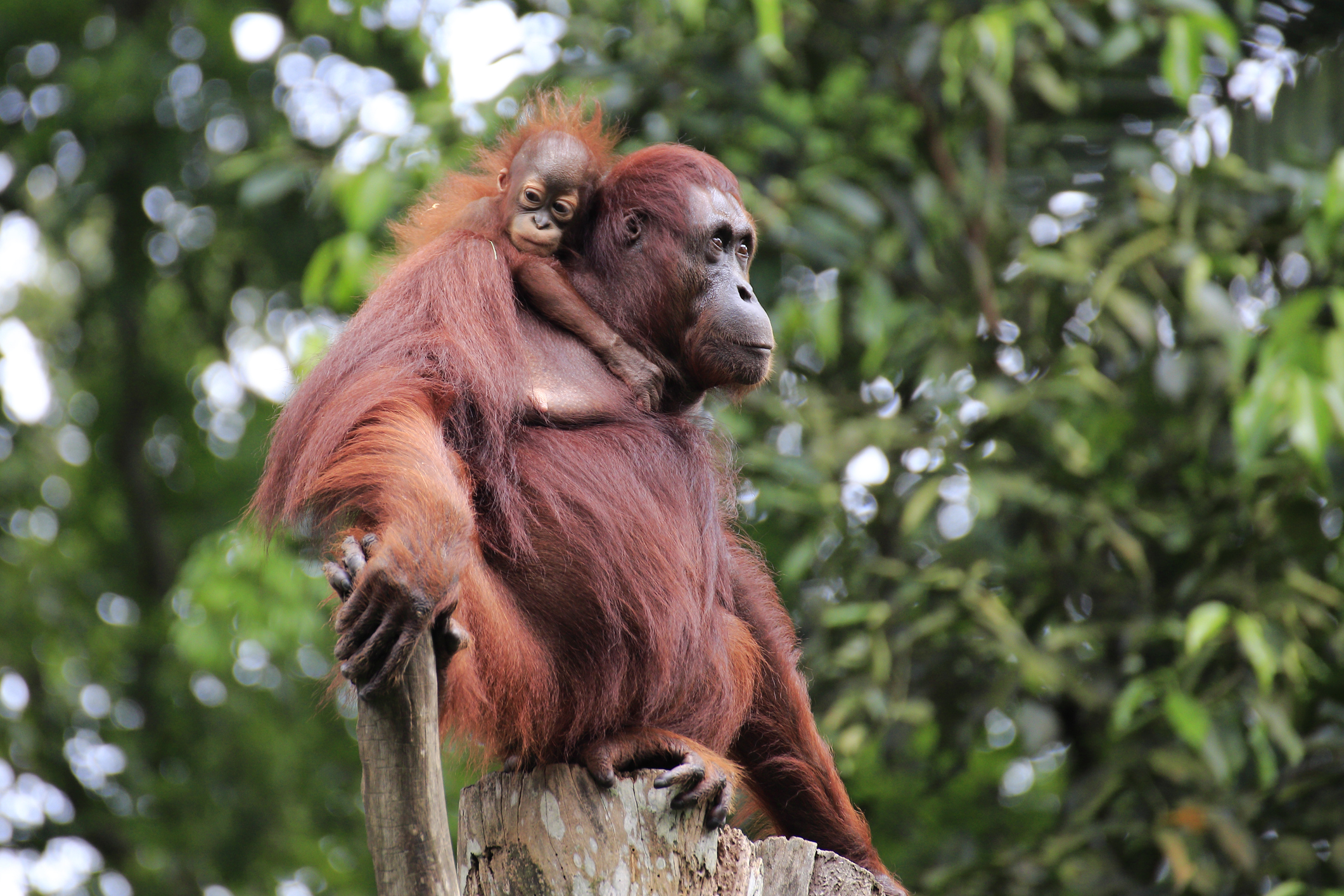The palm oil industry has a sustainability problem which can be summed up in one word: orangutans.
Production of palm oil used in food, cosmetics, soap and other items has surged because it pairs both high yields and versatility. But rainforests in Asia, Africa and Latin America have been cleared for plantations. That has boosted greenhouse gas emissions, obliterated wildlife habitats, curbed biodiversity and encroached on land belonging to indigenous people.
Then came reports of orangutans being shot at plantations in Indonesia.
“We in the industry also take sharp objection to such crazy behavior,” Carl Bek-Nielsen, the CEO of United Plantations Bhd., the first company to receive certification from the Roundtable on Sustainable Palm Oil told Bloomberg News. “It’s mad. These are things which cannot go on.”
Orangutans have lost 80% of their habitat in 20 years as rainforests in Sumatra and Borneo are cleared by illegal logging and fires, according to Orangutan Conservancy . Millions of acres of cleared land have been transformed into palm oil plantations. Advocates are building a movement to curb use of the oil.
“Yes, there has definitely been a backlash against palm, and quite frankly some of it has been justifiable,” said Bek-Nielsen. “That is why, if you look at the way forward, which we feel is an absolute necessity, then it is to commit yourself 100% to sustainable palm oil.”
Bek-Nielsen’s United Plantations received its sustainability certification back in 2008. Since then, the Roundtable has certified almost a fifth of the world’s palm on as sustainable.It’s a voluntary standards organization with more than 4,000 members worldwide, representing all steps in the palm-oil supply chain.
Many environmental and wildlife advocates say that the move to sustainable palm oil is a cynical ploy by the industry to improve its image. Greenpeace International has gone as far as saying “certified sustainable palm oil is a con,” because RSPO includes some of the “most destructive growers and producers in Indonesia.”
- Colombia has been planting oil palm plantations in former cattle pastures rather than rainforests since World War II, a practice that doesn’t increase carbon emissions, according to a study in the November issue of Science Advances.
A Human Rights Watch study released in November found that European development banks have failed to ensure that the palm oil companies they finance in the Democratic Republic of Congo are respecting human rights in and around their plantations.























